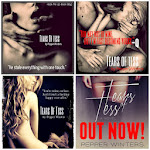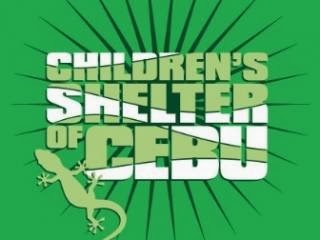
What genre are you most comfortable writing? I love to write fiction with a historical twist. I can’t solely place my stories in the historical fiction category because, by definition of historical fiction, the backdrop of novels have to be set back by at least 50 years. There are times I like to delve into the past as recently as twenty years. I like believe that after a two decade introspection we have learned more wisely than something that happened yesterday. And that’s why I love history: To learn. To question. To redeem our humanity.
My philosophy is this: “Submitting to a moment in time allows us to remember, or to muse even, over our society’s past. Although writing can educate as well as entertain, yet what makes art incredibly amazing, to that of paintings, photographs, and music, it transposes emotion into another form of humanity, and therefore, it is our humanity which keeps all of us striving for an improved future.”
What inspires you to write and why? I love stories that deal with struggle for freedom, searching for identity and purpose, and have some sort of message that forces you to contemplate. John Steinbeck best made the claim: “The writer is delegated to declare and to celebrate man’s proven capacity for greatness of heart and spirit—for gallantry in defeat, for courage, compassion and love. In the endless war against weakness and despair, these are the bright rally flags of hope and of emulation.
I hold that a writer who does not believe in the perfectibility of man has no dedication nor any membership in literature.” And within the same context, he also wrote, “I have come to believe that a great teacher is a great artist and that there are as few as there are any other great artists. Teaching might even be the greatest of the arts since the medium is the human mind and spirit.”
What inspired you to write your first book? When I was fourteen I came across a book, called Kim/ Kimi, about a young girl searching for her real father, who was Japanese-American, only to discover he had been imprisoned in an American internment camp during WWII. I had never heard of these camps up to that point in my life. In Europe, yes; even China, but not here. Not in America. I had to know and therefore went to the library to begin my journey. Three years later I put together a 30 minute mini-documentary for a class project and then wrote a short story.
Nine years later I expanded that story into a novel. Why? I don’t have any Japanese ancestry in my family tree. I live in the Midwest and grew-up in a medium size town where cultural diversity is a bit underdeveloped. My reason is simple: I don’t want to continue to live in a conical world. Consciousness does not develop and mature by existing in a frozen pond. Therefore after I had graduated college in 2000, my husband and I drove to Bainbridge Island, just on the tail skirt of Seattle, Washington, to pursue my journey.
Who or what influenced your writing over the years? John Steinbeck. He mixes literary prose and realism with such grit and fortitude that I’m charmed by his depressing and enriching style. The Grapes of Wrath and Of Mice and Men are still inside my head, and in fact I have made soft suggestions to both books in Eyes Behind Belligerence.
I’ve also been inspired by Empire of the Sun, Lord of the Flies, and To Kill a Mockingbird when dealing with war, prejudices, and violent interactions between people under stressful circumstances. But more recently, I’ve enjoyed how integrating the art of storytelling with historical research have succeeded beyond a marginalized audience such as Middlesex, Water for Elephants, and The Help.
What is your greatest strength as a writer? Crafting the characters. I maintain a strong, realistic quality for each character which makes the characters believable and identifiable. The consistent compliment I receive is the development of dialogue that builds the credibility of each character by having their own voice.
Where do you see yourself in five years? My goal is to have five books published by then, with a mixture of historical fiction, thriller, YA fiction, and a couple of pictorial ballads. By then I hope to acquire more exposure!
Are you reading any interesting books at the moment? Yes, two. One is a memoir, My Traitor’s Heart: A South African exile returns to face his country, his tribe, and his conscience, by Rian Malan. Rian is a liberal Afrikaner who comes from a linage of conservative Calvinist during apartheid. Another is from an indie author, Camp Sunshine, by Ruth Francisco. It’s historical fiction based on the true story of Camp Gordon Johnston.
This novel is about young men on the brink of war, and a country on the brink of civil rights, a tale of soldiers and officers, daughters and mothers, death and redemption, and a man unyielding in his integrity, compassion, and struggle for justice.
Are there any new authors that have sparked your interest and why? I would like to give a shout out to other indie authors: Jim Wills, Marilyn Holdsworth, Robin Levin, and Lilian Gafni. They are very competent writers and writers of historical fiction. I’m impressed by their integrity of story telling and want to draw attention to their talent. Indie authors need all the support we can get! You can read my reviews of their historical fiction books on my blog:
http://richlycoloredmask.blogspot.com/p/other-blogs.html
Do you have any advice for writers? Writing is not an easy means to make money. Be determined, because it is a long road of rejections, dismissals, and criticisms. Seek support from other writers. In the words of my late writing teacher, Leonard Bishop, who states it best: “I believe that if a writer can return to the world more than what the world has given him, then he has earned his keep, not only as a writer, but also as a human being. I also believe that whatever saves my life must be good. I have lived a God-blessed life, and I want to pass it on.”
What tools do you feel are must-haves for writers? Education. Whether it be college or belonging to a writers group, or both, educate yourself with understanding grammar, appreciate writing techniques, and know how to evaluate constructive criticism. Read. Read LOTS OF BOOKS. Observe how the pros develop their stories in content, prose, and character growth. Don’t imitate their writing, but be aware how they compose their works. Write. Write lots of horrible first drafts in order to obtain your voice. Practice does make perfect, so keep at it. I also suggest checking out the advice and humor from my late writing teacher, Leonard Bishop. He had taught many writers, including Anne Rice. www.LeonardBishop.com.
Do you have any specific last thoughts that you want to say to your readers? Do support indie authors. The best ways you can is by leaving feedback of our books on GoodReads, Amazon, Barnes & Noble, Kobo, etc. And if you’ve enjoyed our books, please recommend us! If you didn’t like our works, all is fair in love and reading.
Do you have any upcoming appearances that you would like to share with us? Yes, I have a book signing at Town Crier Bookstore in Emporia, KS on June 15th from 11am-1pm. So, if anyone happens to be in that part of the country, swing by! Other indie authors will be there as well! Spread the love, people!
Who is your favorite author and why? I discovered John Steinbeck in high school, as many secondary students have before me in English classes. I’m grateful he was included as part of the curriculum. Up to that point in my life I had not read that many “goddamns” and “bastards” in YA fiction. In fact, that was the first time I learned how to spell other swear words not often read in bathroom stalls that rhyme with Nantucket. And spelled correctly, I might add. I began counting how many times these “goddamned bastards” appeared in Of Mice and Men. And yet we weren’t allowed to say them in the classroom if we weren’t reading the texts out loud.
The reason I bring this particular topic up is to explain how I began to comprehend a coarse, migrant lifestyle from people who came out of the Dust Bowl. The book opened up another world and I loved it. Not only did I want to be a part of that world by continuing to read Steinbeck, but I wanted more. I too wanted to write about the depravity and faith mankind. As a writer, even in fiction, Steinbeck broke boundaries of how to reconcile what is humane. He mixed literary prose and realism with such grit and fortitude that I’m charmed by his depressing and enriching style.
The Grapes of Wrath and Of Mice and Men are still inside my head, and in fact I have made soft suggestions to both books in my WWII novel, Eyes Behind Belligerence. I named two of my characters Tom and Rose, (although they are married and not brother and sister,) as a quiet dedication to The Grapes of Wrath; and even slid in Of Mice and Men as a favorite book of one of the protagonists in an effort to understand who has the right to take away someone’s life. It also plays into effect of bonding between two unlikely friends who only share the commonality of their environment.

Buy Now @ Amazon
Genre – Historical Fiction
Rating – R (strong language)
More details about the author & the book














0 comments:
Post a Comment